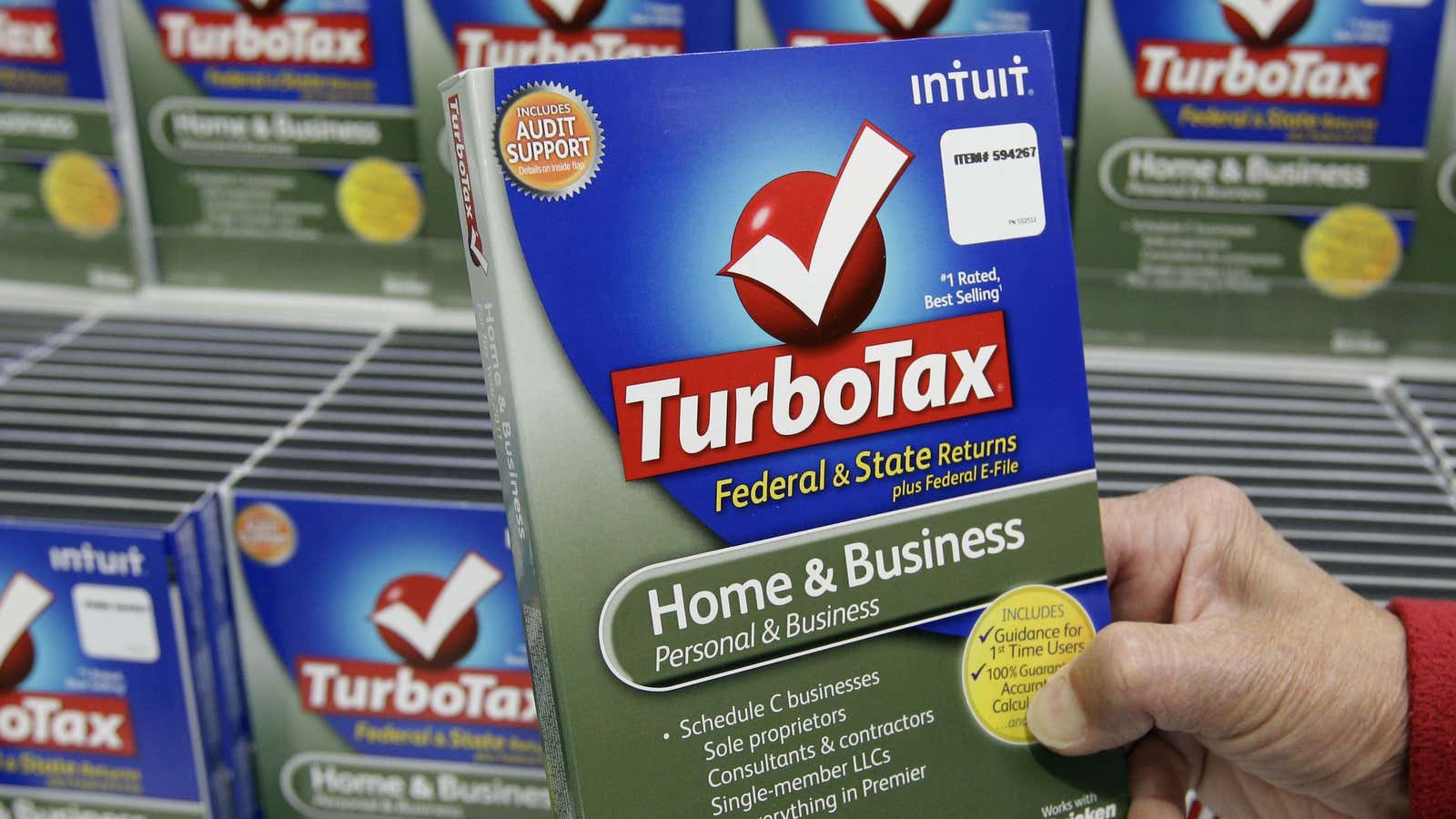Looking for a silver lining in the mess stirred up by the discovery of a major flaw in the software used by many internet sites to encrypt your passwords and other private data?
Good news: The so-called “Heartbleed” bug has delayed tax day.
But only if you are Canadian. US taxpayers still have to file by this coming Tuesday, April 15. And those who use the Turbotax tax-preparation software may want to change their passwords, if they recently visited a Turbotax support website.
The Heartbleed bug affected servers that relied on the OpenSSL encryption software—among them those at Canada’s Revenue Agency. A patch for the problem is now available, but Canadian tax officials shut down their filing site on April 9 and announced that they’ll extend the country’s April 30 tax deadline for at least the number of days that the site remains shuttered. (The site was still down as of April 12 at 3pm.)
The US Internal Revenue Service, on the other hand, issued a one-paragraph statement saying its systems weren’t affected by the bug, and took the opportunity to remind taxpayers to “continue filing their tax returns as they normally would in advance of the April 15 deadline.”
Some US taxpayers, however, might not have escaped the bug’s bite entirely. Most major US tax-related online services appear to have used something other than OpenSSL to keep their customer’s data private. At least, they weren’t listed as potentially vulnerable on lists maintained by Mashable.
The United Services Automobile Association (which offers tax-preparation services too) and Intuit, the makers of Turbotax, however, confirmed that some of their servers used OpenSSL. Both companies said they applied the patch intended to solve the problem before the bug’s existence was made public last week. Intuit also said that “the vast majority of our servers do not use the version of SSL that was vulnerable,” and “We’re confident that TurboTax is safe to you [sic].”
If you’re skeptical, however, security experts recommend that you change your passwords on the sites, now that each has applied the relevant code fix. It’s probably a good idea to do it, and file your returns, by Tuesday.
